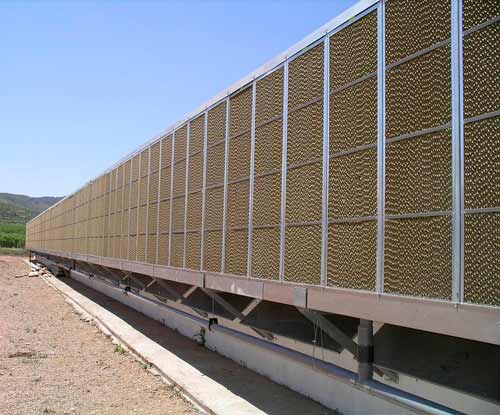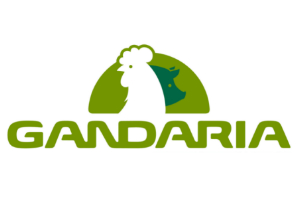Evaporative cooling has numerous advantages for farms, it not only saves energy, but also guarantees the animals well being. But for evaporative cooling to be effective, it is important to take into account a number of considerations in regards to its operation and choose the most suitable evaporative cooling panel.
Basic principle
Evaporative cooling consists of cooling air through the evaporation of water. As the air circulates through a wet surface (a panel made of corrugated and crossed cellulose sheets), water evaporates. To pass from liquid to a gaseous state, water molecules need energy such as heat and this is taken directly from the circulating air, so that after passing through the panel the air looses heat (decreases its temperature) and increases its content in water vapor (humidity increases).
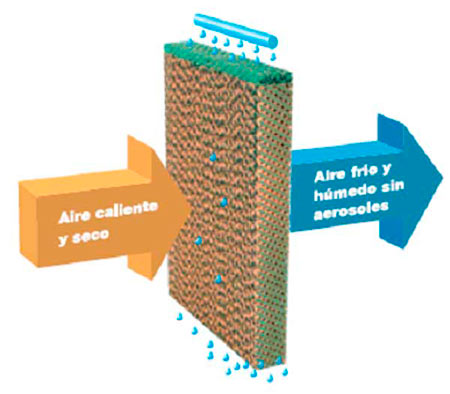 Main advantages of evaporative systems:
Main advantages of evaporative systems:
- Lowering the outside temperature
- Energy savings
- Low cost installation and maintenance
- Maintaining adequate moisture content
- Environmentally friendly
- Elimination of the greenhouse effect and static electricity in the environment
Evaporative cooling considerations
1- For evaporative cooling to be effective, the outside temperature should be high but relative humidity low. The tabe below shows that when the relative humidity is higher there is a lower decrease of the temperature. For example, with an outside temperature of 37° and 30% of relative humidity we will achieve a 10° C decrease, but with an outside temperature of 37° and 50% humidity, will only decrease 4°C.
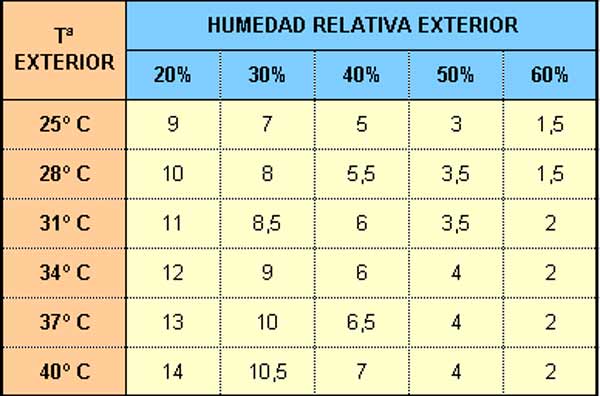
2- Since water must be constantly evaporating to increase the moisture content of the air going through, water consumption is high. Therefore, there should be an adequate and a high supply of water.
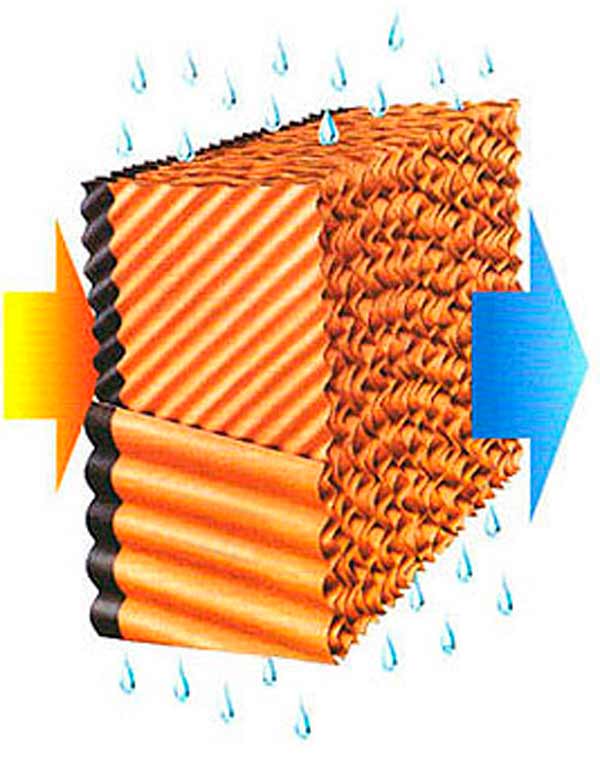
Evaporative panels
The evaporative cooling system for a farm is performed by using cooling panels, that can be of different types, depending on the manufacturers.
Evaporative GER-Gandaria panels are made of corrugated and crossed cellulose sheets which are treated to achieve a high saturation efficiency. Impregnation makes the material highly resistant to corrosion and moisture, ensuring a rigid filter and a long service life.
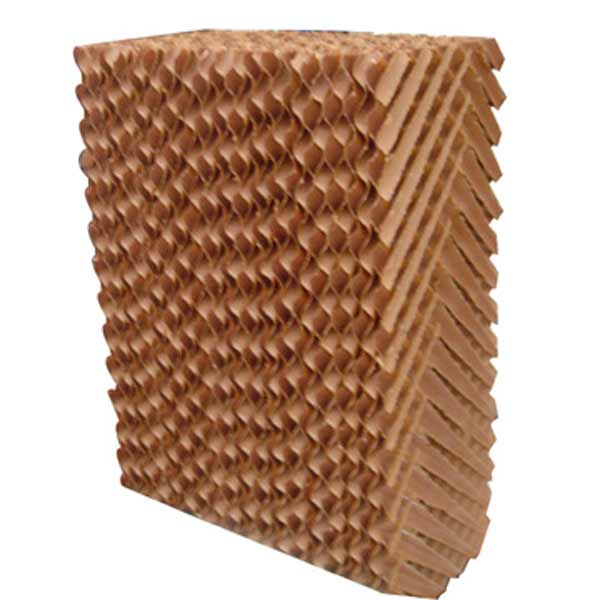
Depending on the thickness (50 to 300 mm) and the speed of the air passing through the panel, different levels of saturation will be achieved and therefore the evaporative cooling will be higher or lower.
That is, if the air velocity is slow, the time in contact with the humid panel is longer, then the air stream takes more water vapor and the temperature reduction is higher. On the contrary, if the air speed is faster, the time in contact with the humid panel is shorter, then the moisture absorbed will be smaller and the temperature reduction will be lower.
The figure below shows that the efficiency is an inverse function of speed.
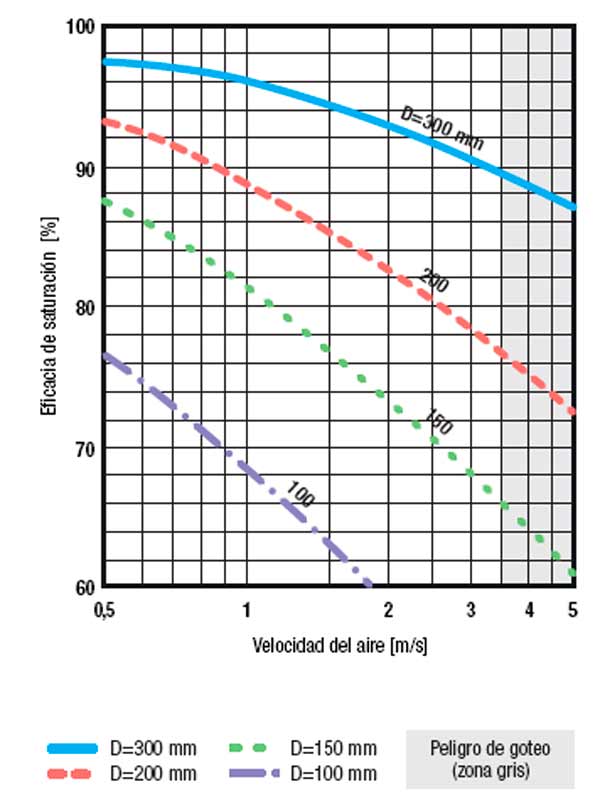
Image: efficiency curve of saturation according to the panel thicknesses
In short, evaporative cooling systems have benefits for the livestock industry, but it is recommended to know how it works to get the best results, both economically and for the well being of animals.




